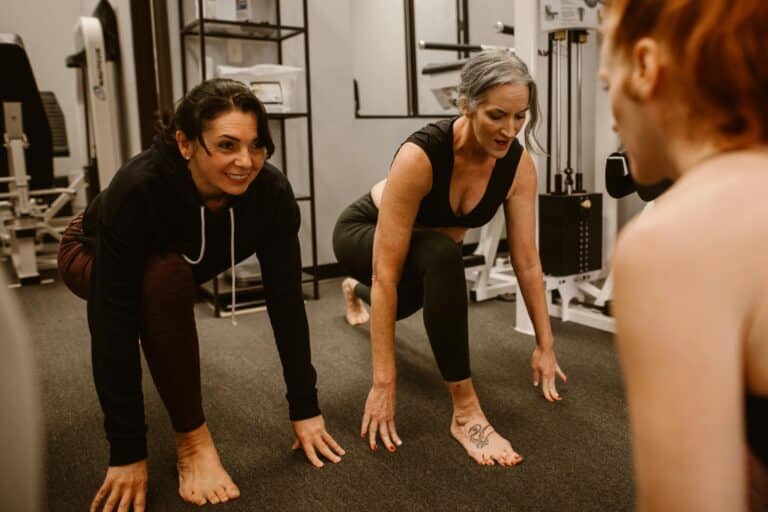Even under the best of circumstances, it’s challenging for immigrants to adjust to a new life in a new country. And when immigrants have fled countries roiled by violence and war, the upheaval and stress in their lives is even more profound. Among refugees, about 10 to 40 percent may experience post-traumatic stress disorder and 5 to 15 percent may have depression, according to the Refugee Health Technical Assistance Center.
Language and cultural differences, however, can be barriers for immigrants who need mental health counseling and treatment, and the stigma around mental health can be hard to counter. Fortunately, organizations are removing those barriers and helping immigrants find support.
A circle of support
The Iraqi Mutual Aid Society (IMAS), an organization supporting immigrants and refugees in their transition to life in Chicago, is focused on fostering well-being. Their support has particularly helped one local immigrant, Ekram Hanna, who has gone on to help remove the stigma around mental health in her community. She’s now creating a safe environment for other immigrants to share their struggles and find their voice.
When Hanna, her husband and her two children immigrated to the United States in 2012, they left their family, friends and religious community behind in Iraq. Once settled in Chicago, they had to assimilate into a vastly different culture.
“It was a hard transition,” Hanna says.
Language barriers, cultural differences and loneliness can lead to depression. It took Hanna about a year to get her bearings, and the absence of family and friends she could lean on for support made the transition even more challenging.
Hanna’s experience made her realize how important connecting with others in a similar situation can be. She joined IMAS in 2017 as a community outreach manager in order to help other women who were adjusting to life in the U.S.
After she was hired, she quickly organized a monthly support group for women that now consists of about 90 women from Iraq, Syria and other countries. Simply talking to other women who are going through similar experiences can be immensely helpful, she says.
“The first thing that can change their life is finding someone who encourages them,” Hanna says.
At the IMAS support group, the women learn practical skills like how to use public transportation and open a bank account. They also discuss issues related to their emotional well-being and safety, such as depression, anxiety and domestic violence. Those topics need to be presented in a culturally appropriate way, Hanna explains.
“We let them know about their rights, encourage them to know more about themselves and be strong,” Hanna says.
Many of the women in the support group come from cultures where mental health disorders have a stigma, which makes it hard for them to admit they are feeling depressed or anxious, she says.
“Because of our culture and the community we used to live in, people expect you to always to be strong and to smile,” Hanna says. “That’s why a lot of people act like they are okay when they are not.”
Hanna wanted to become more knowledgeable about mental health issues, so last year she applied for and was awarded a scholarship to attend the National Refugee Mental Health Leadership Training program, sponsored by the National Partnership for Community Training.
Hanna is now certified in mental health first aid by the National Council for Behavioral Health. She doesn’t provide counseling herself. Rather, she is trained to spot signs of mental illness and refer people to counseling programs and mental health professionals.
Assistance for immigrant survivors of gender violence
One organization IMAS partners with is Apna Ghar, which provides counseling, emergency and transitional housing, advocacy and support services to people in the immigrant community who have experienced gender violence.
“We provide individual counseling, family counseling and support groups,” says Sara Heidbreder, LPC, a counselor at Apna Ghar. “We talk about depression and anxiety and how to cope with those immediate needs and feelings… if it gets to the point that they need medication or more psychiatric services, we refer them.”
Mental health counseling needs to be offered in the context of financial, legal or housing issues that may be exacerbating stress and anxiety in the lives of clients, she adds. Cultural sensitivity and counseling in the client’s native language is crucial when counseling immigrants who have experienced gender violence.
“In so many languages, they don’t even have a direct translation of mental health or emotional health,” Heidbreder says. To help her clients understand why it’s important to get counseling, Heidbreder often uses the analogy of going to the doctor to take care of a physical ailment.
“I present it [as], everyone gets sick, everybody gets the flu, and you see the doctor. In the same way, if you cannot figure out how to make yourself feel better in everyday life, it’s okay to see the doctor,” Heidbreder says.
Soon, Hanna will share what she learned in her training at three sessions she is presenting to the staff of other nonprofit agencies in Chicago that work with immigrants.
It’s gratifying to watch women who were once depressed or anxious start to blossom and, in turn, help others, she says.
“Once they start working on their lives,” she says, “it helps them feel like they have something to give.”

Ellen Ryan is an award-winning writer/editor specializing in profiles, Q&As, and case studies; consumer health; education and career change, business; and grammatical near-perfectionism. (Nobody’s perfect.)










